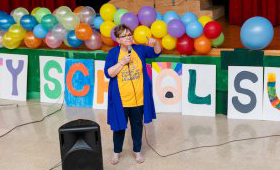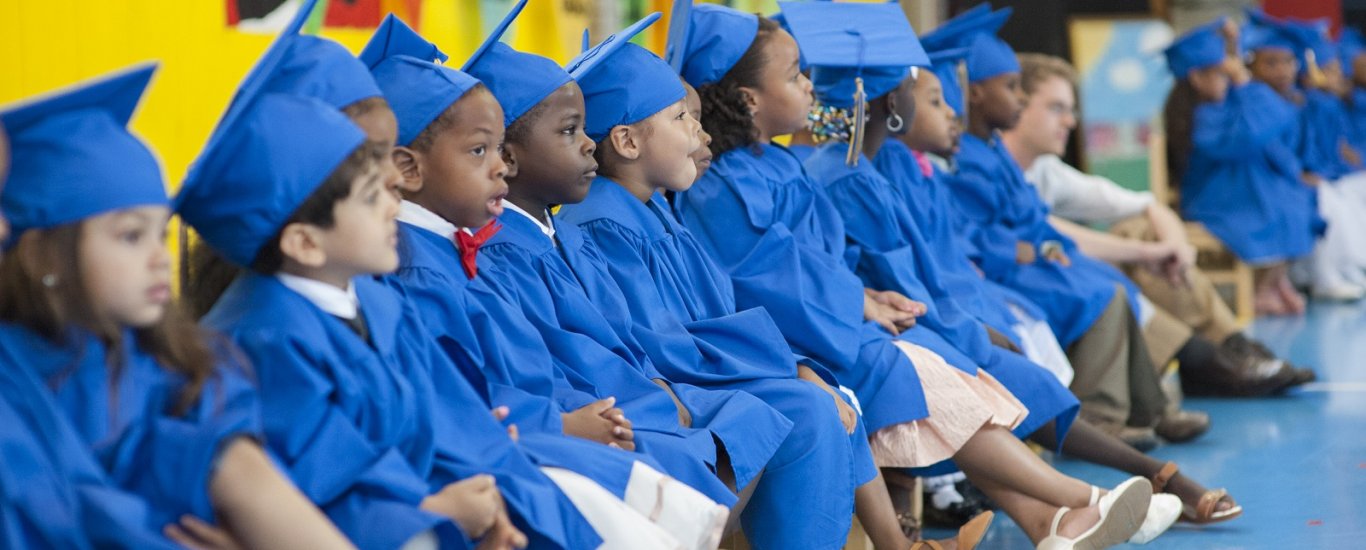New York – Data collected from 1,148 young people at four New York City Children’s Aid Society Carrera Adolescent Pregnancy Prevention (CAS-Carrera) program sites find that participants are significantly less likely to have had sexual intercourse, used alcohol or marijuana and other risk factors compared to the national average. The CAS-Carrera program uses a holistic approach to empower youth, help them develop personal goals and the desire for a productive future, and develop sexual literacy and understanding of the potential consequences of sexual activity. The program operates as both a traditional daily after-school and Saturday program and as part of public and charter school days during typical school hours.
“Today’s New York City youth need a comprehensive sexual education program that teaches them everything from condom use to abstinence as well as the development of a positive self-image and the many factors that have not been included in the proposed new NYC education curriculum,” said program director and creator Michael Carrera, PhD. “After 27 years of holistic sex education programs, we’ve found our students are much less likely to engage in unprotected sex, get in fights or experiment with alcohol and drugs than their counterparts nationally, we have a system that works. I urge Chancellor Walcott and the Mayor to implement a well-balanced sexual education program.”
Philliber Research Associates conducted the survey at four New York City CAS-Carrera sites in spring 2011. The 1,148 young people represent 94% of the 1,217 active participants at these sites.
“CAS-Carrera is the only three-year fully evaluated teenage pregnancy prevention program with statistically proven effectiveness in the country, yielding a 50% reduction in birth rates in communities served and a multitude of other positive youth development outcomes,” said The Children’s Aid Society President and CEO Richard Buery. “We know that it increases the likelihood of high-school graduation and college admission; increases employment experience and the use of private physicians instead of emergency rooms. We hope the Mayor and Chancellor Walcott work with us as they develop their own sexual education curriculum.”
The model includes seven fundamental components:
- Education: Daily engagement includes one-on-one or small group tutoring, PSAT and SAT preparation, and college trips. Individual academic plans for participants are developed;
- Employment:Weekly Job Club class is a full introduction to financial literacy and the "world of work," including opening bank accounts, exploring career choices and providing summer and part-time jobs. Participants are paid a stipend and make monthly deposits in their bank accounts;
- Family Life and Sexuality Education (FLSE):Medically and scientifically comprehensive sexuality education sessions are taught in an age-appropriate fashion weekly;
- Mental Health Services:Certified social workers lead weekly discussion sessions called Power Groups. 24-hour counseling and crisis intervention as needed;
- Full Medical and Dental Care:Comprehensive medical and dental services are provided in partnership with local providers;
- Self-Expression:Multiple exposures to music, dance, writing and drama workshops are led by theater and art professionals, where children can discover talents and build self-esteem; and
- Lifetime Individual Sports:Multiple exposures to a program emphasizing sports that build self-discipline, impulse control and can be enjoyed throughout life, including golf, tennis, squash, swimming, and bowling.
The survey analyzed data from 6th through 10th grades.
Highlights by grade include:
Sixth Graders
- The percentage of CAS-Carrera 6th graders who have had intercourse is 4% compared to 14% of 6th graders nationally.
- The percentage in a physical fight is 35% among CAS-Carrera participants but 58% nationally.
- 3% of these CAS-Carrera 6th graders have carried a weapon, compared to 22% nationally.
- The percentage using alcohol is 10% among CAS-Carrera participants compared to 28% nationally.
- 1% of these CAS 6th graders report marijuana use compared to 6% of 6th graders nationally.
Seventh Graders
- The percentage of CAS-Carrera 7th graders who have had intercourse is 12% compared to 22% of 7th graders nationally.
- The percentage in a physical fight is 35% among CAS-Carrera participants but 66% nationally.
- 6% of these CAS-Carrera 7th graders have carried a weapon, compared to 31% nationally.
- The percentage using alcohol is 21% among CAS-Carrera participants compared to 43% nationally.
- 6% of these CAS 7th graders report marijuana use compared to 15% of 7th graders nationally.
Eighth Graders
- The percentage of CAS-Carrera 8th graders who have had intercourse is 22% compared to 34% of 8th graders nationally.
- The percentage of CAS 8th graders who used a condom at last intercourse is 85% compared to 76% among 8th graders nationally.
- The percentage in a physical fight is 35% among CAS-Carrera participants but 70% nationally.
- 12% of these CAS-Carrera 8th graders have carried a weapon, compared to 36% nationally.
- The percentage using alcohol is 38% among CAS-Carrera participants compared to 57% nationally.
- 10% of these CAS 8th graders report marijuana use compared to 25% of 8th graders nationally.
Ninth Graders
- The percentage of CAS program 9th graders who have had intercourse is 41% compared to 45% of 9th graders nationally and 41% of NYC 9th graders.
- The percentage of CAS 9th graders who used a condom at last intercourse is 96% compared to 62% among 9th graders nationally and 67% among NYC 9th graders.
- The percentage in a physical fight is 42% at CAS but 45% nationally and 46% in NYC.
- 13% of these CAS program 9th graders have carried a weapon, compared to 16% nationally and 18% among NYC 9th graders.
- The percentage using alcohol is 42% at CAS compared to 64% nationally.
- The percentage using alcohol within the past 30 days is 21% at CAS compared to 33% nationally and 37% in NYC.
- 23% of these CAS 9th graders report marijuana use compared to 33% of 9th graders nationally and 31% among NYC 9th graders.
- The percentage using marijuana within the past 30 days is 12% at CAS compared to 20% nationally and 23% in NYC.
- The percentage who have ever been pregnant or caused a pregnancy is 3% at CAS compared to 4% nationally and 7% among NYC African-American and Hispanic youth.
Tenth Graders
- The percentage of CAS program 10th graders who have had intercourse is 45% compared to 56% of 10th graders nationally and 48% among NYC 10th graders.
- The percentage of CAS 10th graders who used a condom at last intercourse is 86% compared to 66% among 10th graders nationally and 63% among NYC 10th graders.
- The percentage in a physical fight is 20% at CAS but 41% nationally and 39% in NYC.
- 8% of these CAS program 10th graders have carried a weapon, compared to 15% nationally and 12% in NYC.
- The percentage using alcohol is 57% at CAS compared to 72% nationally.
- The percentage using alcohol within the past 30 days is 22% at CAS compared to 39% nationally and 40% in NYC.
- 14% of these CAS 10th graders report marijuana use compared to 41% of 10th graders nationally and 37% among 10th grade NYC youth.
- The percentage using marijuana within the past 30 days is 5% at CAS compared to 21% nationally and 19% in NYC.
- The percentage of CAS 10th graders who have ever been pregnant or caused a pregnancy is 6% compared to 7% of 10th grade youth nationally and 7% among NYC African-American and Hispanic youth.
The Children’s Aid Society is an independent, not-for-profit organization established to serve the children of New York City. Our mission is to provide comprehensive support for children in need, from birth to young adulthood, and for their families, to fill the gaps between what children have and what they need to thrive. Founded in 1853, it is one of the nation’s largest and most innovative non-sectarian agencies, serving New York’s neediest children. Services are provided in community schools, neighborhood centers, health clinics and camps. For additional information, please call Anthony Ramos at (w) 212-949-4938, (c) 917-204-8214, email anthonyr@childrensaidsociety.org, or visit www.childrensaidsociety.org.
###



